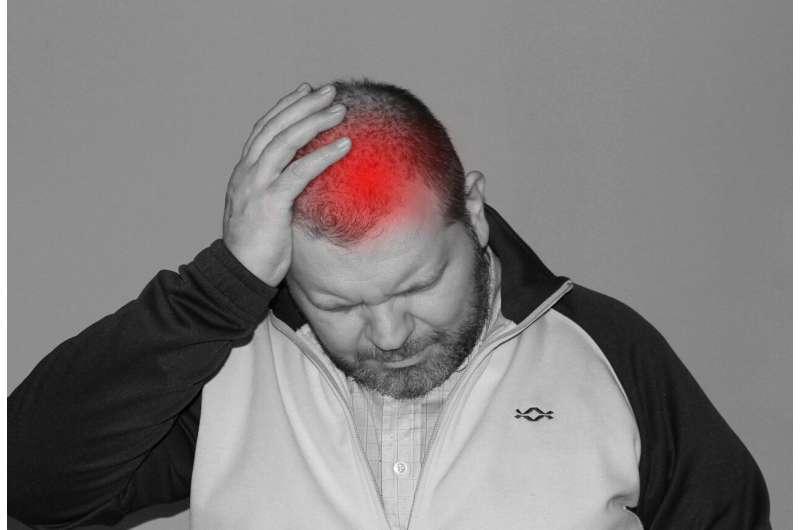Anyone who thinks of a migraine as "just a headache" has likely never had one, as the condition can be debilitating and painful.
Migraine is a neurologic disorder that not only causes headaches, but often also a constellation of symptoms that can impact daily living, explains Jason Sico, MD, MHS, a Yale Medicine neurologist.
"We know migraines are caused by changes in the body and the brain chemistry and that genetics account for about half of all migraines," Dr. Sico says. "Often, it is associated with nausea and vomiting, as well as sensitivity to light, sound, and smell."
Furthermore, a migraine headache is often preceded and followed by a few days of feeling "off," which can include fatigue and low mood.
Unfortunately, some patients don't speak up about migraine because they've been dismissed by a medical professional in the past, Dr. Sico adds.
"This is something that profoundly affects someone and their family, and if people are taking over-the-counter medication to treat their pain multiple times a day or even daily, that tells me something is going on that we need to investigate further," Dr. Sico says. "And paradoxically, over time, if people are taking pain medication as needed, that can actually make the headache worse, and sometimes they develop a new type of headache."
The good news is that many migraine treatments, including new medications, have come out in the past decade. Plus, there is strong evidence that certain vitamins and supplements can prevent—or at least reduce the severity of—migraines, Dr. Sico says.
Neuromodulation devices, which use small electrical or magnetic impulses to stimulate parts of the brain, can also prevent migraines or mitigate their effects.
The bottom line, Dr. Sico says, is to speak up if you are experiencing headache pain. "It's not just in your head. And if you bring it up to a doctor who is dismissive, find someone else to talk to about it, because there are people who want to understand your pain and help treat it," he adds.
Provided by Yale University
- Karlston
-

 1
1




Recommended Comments
There are no comments to display.
Join the conversation
You can post now and register later. If you have an account, sign in now to post with your account.
Note: Your post will require moderator approval before it will be visible.